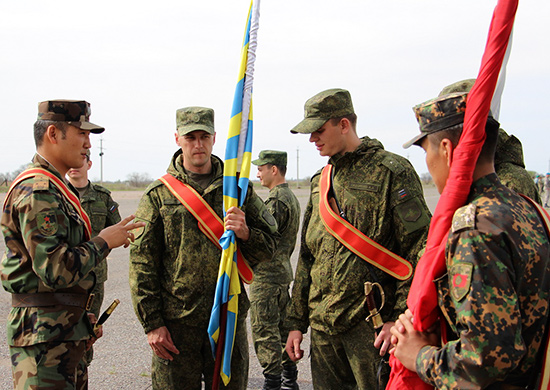
Why Does Kyrgyzstan Want a Second Russian Military Base?
By:

Kyrgyzstan has had a Russian military base on its territory since handing over the Kant airfield to Moscow in 2003. And now it wants a second one. The Kyrgyz Republic’s president, Almazbek Atambayev, says that he would not be disturbed by having one and has even asked Russia to consider the matter, but he has not yet received an indication that the Kremlin is interested (Centrasia.ru, July 25; Nezavisimaya Gazeta, July 24).
Other former Soviet republics, even those that enjoy good relations with Moscow, have been unwilling to even consider such a possibility. Indeed, most that have bases have worked hard to limit the size of the Russian military footprint in their countries, viewing it as a diminution of their sovereignty and independence. But Kyrgyzstan is different, and there are at least three reasons that have compelled Bishkek to consider this unusual possibility.
First, Kyrgyzstan finds itself the object of intense interest by the People’s Republic of China, its enormously powerful neighbor that is increasing its presence in the Kyrgyzstani economy and society (see EDM, November 7, 2012; February 13, 2014). A second Russian base on its territory would be a powerful signal to Beijing that there are real limits to the expansion of Chinese power in this direction.
Second, Kyrgyzstan has anything but warm relations with its two larger Central Asian neighbors, Kazakhstan and Uzbekistan. Its ties with the former are limited by economic competition, but its relations with the latter are fraught with difficulties. Uzbekistan and Kyrgyzstan have not agreed on the demarcation of their common border (see EDM, August 1, 2014), they have an ongoing dispute about water (Kyrgyzstan has a water surplus and Uzbekistan has a water shortage) (see EDM, September 13, 2016), and the sizeable ethnic-Uzbek population in the southern part of Kyrgyzstan has been in revolt against Bishkek on and off for the last two decades (see EDM, June 18, 2012).
And third, Kyrgyzstan fears it is threatened by Islamist violence and that Moscow is paying far more attention to its neighbors that adjoin Afghanistan—Tajikistan and Uzbekistan. If the Russians were to open a second base on Kyrgyzstan’s territory, many in Bishkek believe, it would pay more attention to the threat there and Kyrgyzstan would thus be more secure.
Given Vladimir Putin’s interest in restoring a Moscow-dominated imperial space across the former Soviet Union, why is the Russian government not rushing to say “yes” to Bishkek’s almost plaintive request? The answer is simple: money. While the Russian government would very much like to have more bases in Central Asia in general and in Kyrgyzstan in particular, it simply cannot afford taking that step now.
Moscow’s failure to respond positively to Bishkek on this issue is one of the best indications of just how overstretched the Russian military budget currently is as a result of Moscow’s actions in Ukraine and Syria and President Vladimir Putin’s commitment to rebuilding the navy—an expensive and probably unattainable goal (see EDM, August 1, 2017).



